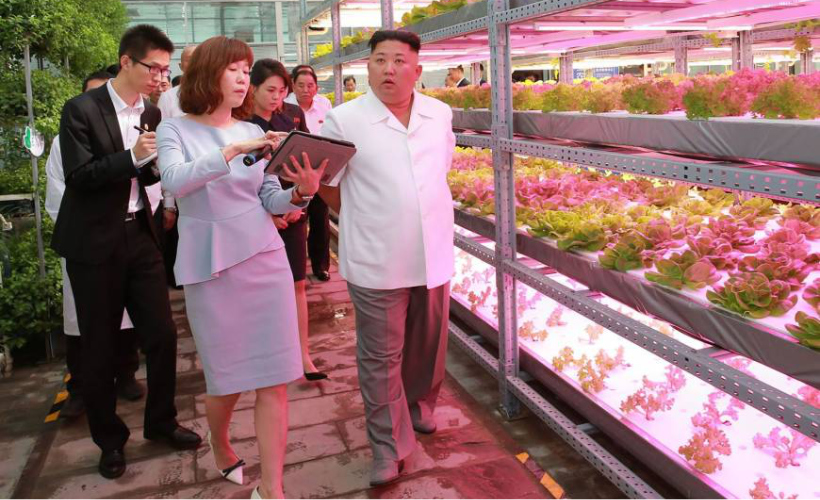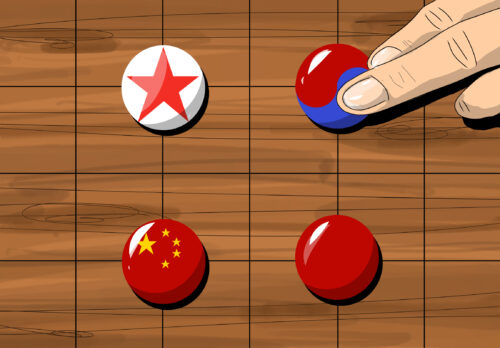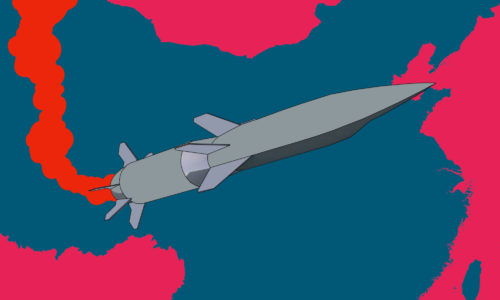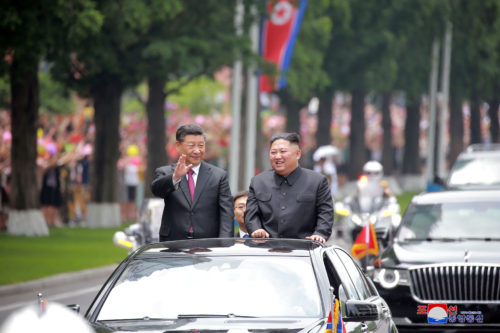Will North Korea finally take China’s offer of economic know-how?

North Korean leader Kim Jong-un wrapped up his two-day trip to China on June 20 — his third trip to the country in three months’ time — with an interesting pit stop.
- Kim inspected the Chinese Academy of Agricultural Sciences, which the New York Times says (paywall) was “at the forefront of introducing technology and management techniques that transformed China’s agricultural sector,” a key step in China’s early economic development after “Reform and Opening Up.”
- “We are happy to see that the DPRK (North Korea) made a major decision to shift the focus to economic construction,” General Secretary Xi Jinping said, AFP reports, in a cheekily headlined article, “Easy as A, B, Xi — China gives economic lessons to North Korea.”
- On the inspection with Kim was Premier Pak Pong-ju, the top economic official in North Korea, which Trivium interprets as an “important sign that Kim is willing to take Xi up on his offer” of economic know-how.
- Of course, the previous North Korean dictator also paid dozens of visits to China’s factories and research facilities, including CAAS in 2006, the Times notes, but there was no appreciable economic progress for starving citizens back home.
Experts and commentators are divided on whether there is a sincere desire in North Korea for economic reform. But in any case, Reuters reports, the outside money and knowledge for such a reform would primarily from China.
- There is “a certain historical resemblance” between Kim Jong-un’s visit to Singapore, a modern metropolis whose grand sights were plastered on North Korea’s newspapers during the summit, and Deng Xiaoping’s trip to the U.S. in 1979 at the start of China’s economic reform, Zhao Tong of the Carnegie-Tsinghua Center in Beijing told AFP. Zhao “predicts that North Korea has now reached its own major turning point.”
- Others argue that “at the moment there is no other option” for North Korea than to open up its economy to some extent. This is the argument of Zhu Feng, an international relations professor at Nanjing University, quoted by AFP.
- Veteran China reporter Evan Osnos, who has travelled to and written about North Korea recently, similarly reported (paywall) for the New Yorker that North Korea’s citizenry increasingly demands greater opportunities to engage in profit-making businesses and to build a modern life, and Kim likely senses that his grip on power could be threatened if he does not accommodate this trend over the next 5-10 years.
- Abigail Grace, who very recently served as one of the top Asia-Pacific policymakers on the U.S. National Security Council, spoke optimistically on Twitter of the CAAS visit by Kim and the possibility of “meaningful economic reform” in North Korea.
- But two Korea specialists who spoke to Inkstone were not so optimistic.
- “Kim Jong-un does not seek reform in any meaningful sense of the word, but a jacked-up international subvention scheme,” Lee Sung-yoon of Tufts University said.
- “As soon as North Korea starts to seriously experiment and become fully aware of the success of a bright shiny Korean version of capitalism a few miles down the road, then the legitimacy of cult leadership is exposed and everything will come crashing down,” Bronwen Dalton of the University of Technology in Sydney predicted.






